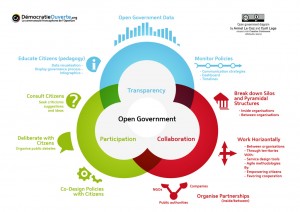I am posting the complete message as a public service to us all! See the Canadian Association of University Teachers (CAUT) Save Library and Archives site for updates and additional information.
Librarian and Archivist of Canada Resigns
On May 15, 2013 Daniel Caron, Chief Librarian and Archivist of Canada, resigned from his post. Caron’s leadership at LAC has been immensely unpopular. He oversaw the introduction of a “modernization” process which led to the cessation of purchased acquisitions, a severe decline in on-site service, a 20% cut to staff, a punitive code of conduct for employees, and the elimination of both the National Archival Development Program and the Inter-Library Loans program at LAC.
On May 22nd LAC employees were informed that Hervé Déry – Assistant Deputy Minister and Corporate Secretary in Policy and Collaboration – will be filling in as Interim Deputy Head of LAC. It is imperative that Monsieur Dery’s role is only interim and that the next Librarian and Archivist of Canada does not come from the ranks of current LAC management. LAC needs someone who is willing to reverse the damage that has been done at LAC over the past few years, as well as someone who will advocate for both LAC and libraries and archives across the country.
LAC has the opportunity to take up a new direction with a strong commitment to comprehensive collections and access for all Canadians both on-site and on-line. However, the dismemberment of LAC must also be understood as part of a more systemic problem, that is the federal government’s disregard for scientific evidence, data and a comprehensive historical record that is also occurring, for example, through the decimation of archeological research at Parks Canada, and the elimination of key Statistics Canada surveys.
A coalition of professional associations representing librarians, archivists, and historians has written an open letter outlining the qualities they expect in the next Librarian and Archivist of Canada. Click here to read the letter.
Here also is a thoughtful op-ed about the next leader of LAC.
CAUT`s statement on what it calls for in the next Librarian and Archivist of Canada can be found here.
LAC “not meant for public access”
In a telling exchange on Twitter, Minister James Moore responded to questions about deteriorating funding and access at LAC by stating “Is why (sic) we’re creating the History Museum: access. The LAC main building is not designed or meant for public access. History is.”
The subtext here couldn’t be clearer: While the government is actively thwarting access to resources that makes independent historical research possible, it is simultaneously eager to represent a version of Canada’s past that supports its own ideological vision in the present.
CAUT’s Executive Director wrote to Minister Moore requesting clarification about his statement.
A violation of the charter: LAC’s Code of Conduct
In March 2013, the LAC’s code of conduct restricting the activities of librarians and archivists was publicized.
The NDP has since requested that the Information Commissioner investigate the LAC Code of Conduct in the context of her investigation into the muzzling of government scientists and experts.
The Canadian Association of Professional Academic Librarians has issued a statement condemning LAC’s new Code of Conduct and analyzing the ways in which the code contravenes the Charter of Rights and Freedoms.
Specialist Archivists become generalists
Although there has been no official announcement from LAC, it appears that all specialist archival portfolios at LAC have been eliminated. Specialist portfolios have been replaced by function-based portfolios such as arrangement, description, appraisal etc. Specialist archivists are vital to the accessibility of LAC collections to Canadians.
Research will be greatly impoverished without the specialist archivists to help guide researchers through the collections. In fact, some researchers have actually been told that certain fonds are not available to them because the archivist expert with knowledge of the particular collections-area is no longer in the position.
This is not simply an issue of access to specialized material for individual researchers; this is will affect all Canadians. Without access to the full range of our historical documentary materials, our ability to understand our history is seriously compromised.
Canadian History on the Auction Block
With the revelation that “a huge cache of Canadian history” will be going to auction in the UK in June, LAC’s stalled acquisitions program is under public scrutiny. The key question is whether Library and Archives Canada will purchase these vital historical records or allow them to be acquired by a private collector.
Read more.
LAC: Lender of no resort
In the wake of LAC’s elimination of the popular and effective Inter-library loans program at LAC, researchers are at a loss. While LAC officials have indicated that LAC will ultimately be developing a “Lender of Last Resort” policy, this policy will not be in place until September 2013. In the meantime, researchers are being told they are simply out of luck.
Royal Society of Canada Expert Panel
The Royal Society of Canada is establishing an Expert Panel on “The Status and Future of Canada’s Libraries and Archives”.
For more information contact:
Rosa Barker (613-726-5166) barker@caut.ca

Comments on Posts